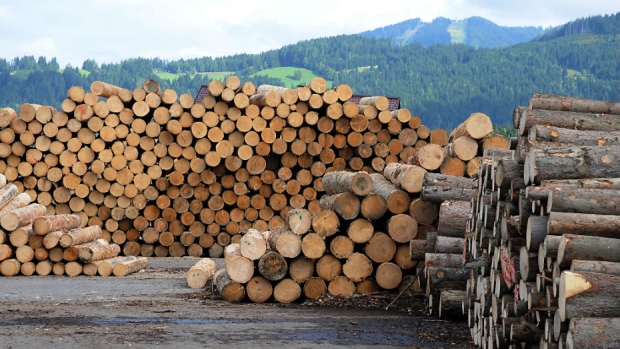Aug 4, 2017
U.S. lumber mill owners say 'no hurry' to reach deal with Canada
, Reuters

WASHINGTON - U.S. lumber mill owners said on Thursday they were "in no hurry" to reach a softwood lumber deal with Canada that fails to limit Canadian producers' share of the U.S. market to a strict percentage.
The owners of four lumber mills told Reuters that talks to end a decades-old dispute with Canada should stay on a separate track from negotiations to modernize the North American Free Trade Agreement that are due to start on Aug. 16.
"We're in no hurry to settle for a bad agreement," said Steven Swanson, president of Swanson Group Inc in Glendale, Oregon. "We're not willing to sacrifice and settle for a bad agreement just to avoid a fight in NAFTA."
U.S. Commerce Secretary Wilbur Ross has said he wants to complete a softwood lumber agreement before NAFTA talks to avoid complications. Swanson, however, said he was not optimistic that a deal could come together in the next two weeks.
The U.S. mill owners, who were in Washington to meet with their trade group and promote their negotiating position, said they wanted a deal with a "clean quota" that had strict market share limits for Canada, but they declined to specify the percentages they would support.
Canada's ambassador to the United States, David MacNaughton, was quoted on Wednesday by the Canadian Press as saying that the United States and Canada were close to agreeing on a split that would give roughly 70 per cent of the market to U.S. producers and 30 percent to Canadian producers.
Jason Brochu, co-president of Pleasant River Lumber Co in Dover-Foxcroft, Maine, said he had no knowledge of such a split.
"A clean quota is a percentage of the market, a percentage of the consumption. As the market grows, there's more volume that's able to come in. As the market shrinks there's less volume that's able to come in."
U.S. producers have long charged that Canada unfairly subsidizes its lumber producers through low fees for timber cut on public land. U.S. producers get most of their timber from private land, where costs are higher.
They were only starting to recover from the 2007-2009 U.S. housing collapse and financial crisis when the last lumber agreement expired in 2015 and Canada's share of the market rose, prompting them to file anti-dumping and anti-subsidy cases against Canadian producers.
The U.S. Commerce Department this year agreed with them and imposed combined duties of 17 to 31 per cent.
While that could buy them some leverage to wait longer for a deal, Canadian lumber is continuing to flow into the United States, due to strong demand for U.S. home building.
"They're paying the duties," said Chuck Roady, vice president and general manager of F.H. Stoltze Land and Lumber Co. in Columbia Falls, Montana.


